‘Based on facts’: Kean sceptical on nukes
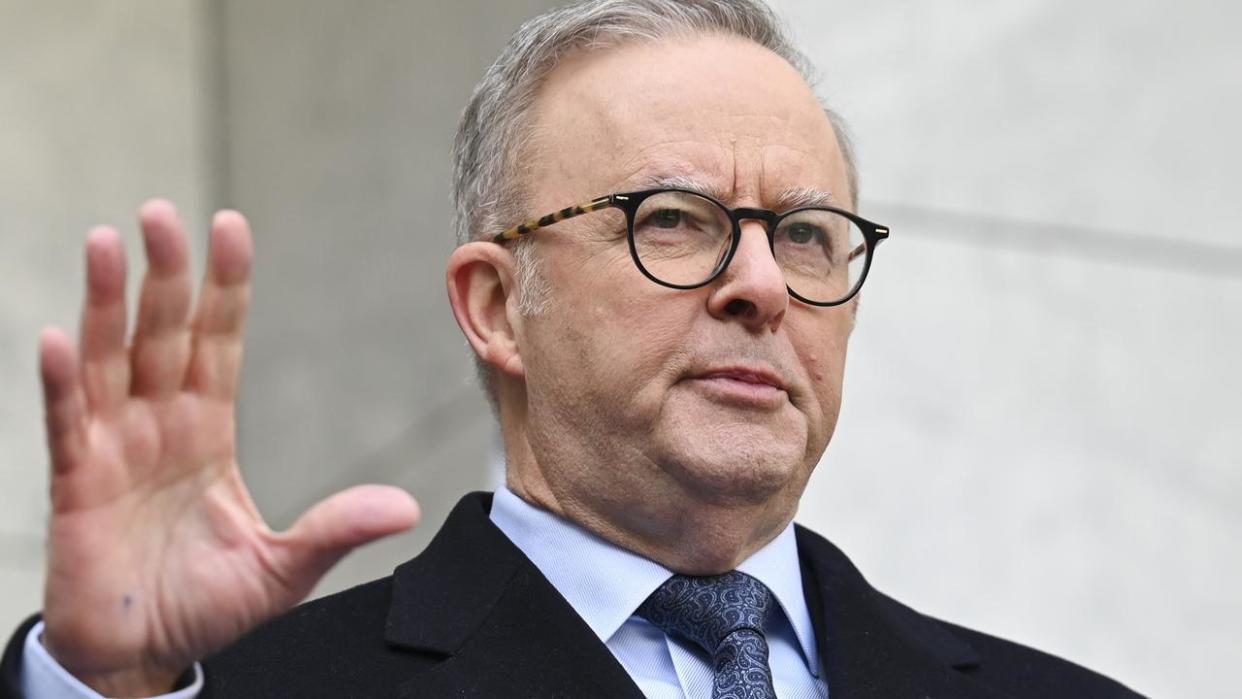
Incoming Climate Change Authority chair and former NSW Liberal treasurer Matt Kean has poured cold water on the Coalition’s nuclear plans, arguing that a turn to atomic energy would take “far too long” and be “far too expensive”.
Appointed to the position by the Albanese government on Monday, Mr Kean, who announced he was quitting politics just last week, also served as energy and climate change minister under former NSW premier Gladys Berejiklian.
Speaking alongside Prime Minister Anthony Albanese and Energy and Climate Change Minister Chris Bowen, Mr Kean said he would take a “pragmatic approach” to energy policy, and would not be driven by ideology in his role.
“If we get the transition right, we cannot only put downward pressure on electricity bills for families and businesses right across the country but protect our environment and make our economy even stronger and more prosperous for everyone,” he told reporters in Canberra.
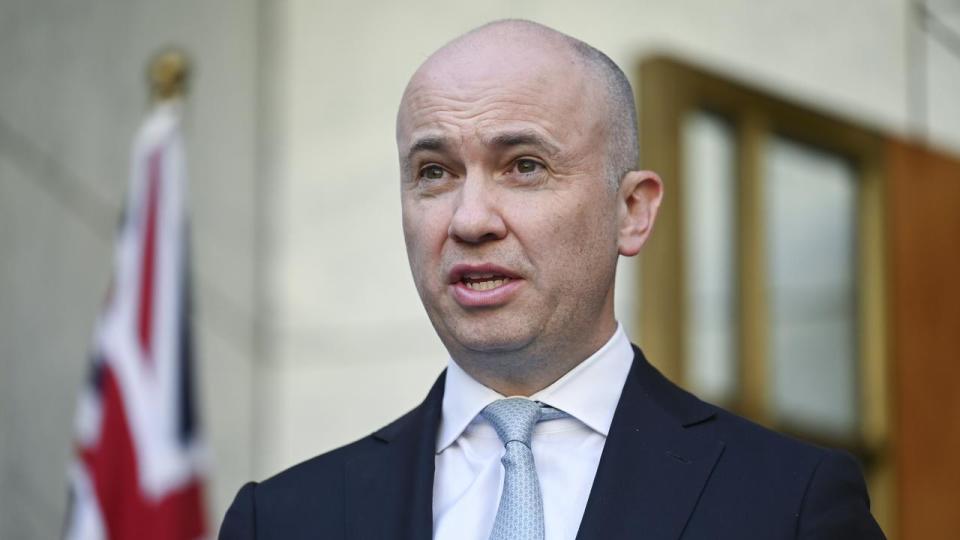
“I will be making decisions and providing advice of the government based on facts.”
While not directly commenting on the Coalition’s proposal to build seven Commonwealth-owned nuclear power plants by 2050, Mr Kean said advice he had received as NSW energy minister showed the cost and time frame of nuclear energy ruled it out as a viable option.
“The advice that I received at the time, which was most compelling, was from the chief scientist of NSW, professor Hugh Durrant-Whyte, and he is one of the few people in the country who has run a nuclear program,” Mr Kean said.
“His advice to me was to bring nuclear into the system, it would take far too long and would be far too expensive for NSW.”
Asked if there were other Liberals that were sceptical with the Coalition’s proposed rollout of nuclear power, Mr Kean pointed to analysis conducted by the Australian Energy Market Operator and the CSIRO.
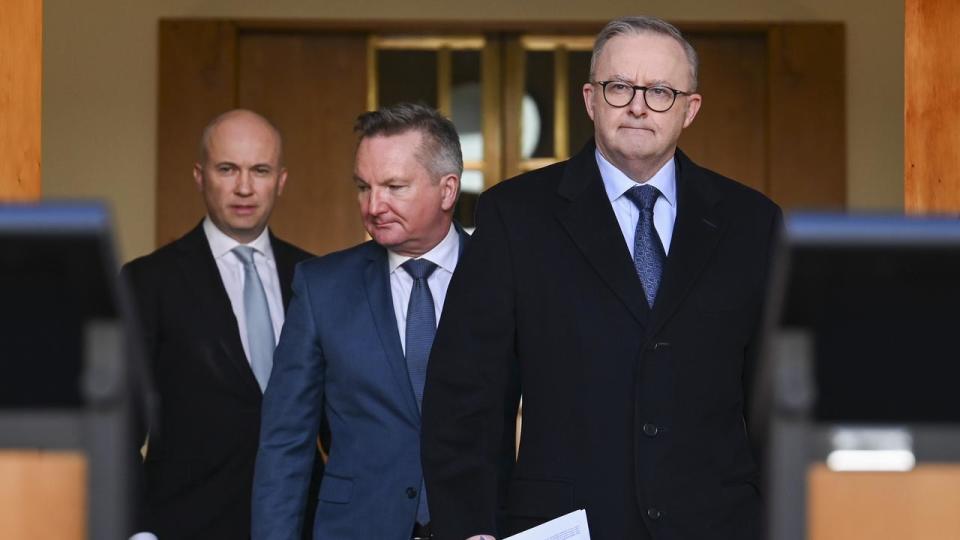
“The latest scientific, engineering and economic advice that has looked at these matters that I’m aware of is from the CSIRO,” he said.
“They very clearly say that the cheapest way to transition our electricity system is to move towards renewables backed up by firming and storage.
“That’s what the CSIRO says, that’s what AEMO says, that’s the evidence available to us, I’m not aware of anything different.”
Announcing Mr Kean’s appointment, Mr Albanese also took a swipe at the Coalition’s plans and the Opposition Leader Peter Dutton.
“This is about delaying the investment that is required,” he said.
“Mr Dutton is on the fringe of Australian politics. He is nowhere near the centre, he is out there on the hard right of Australian politics, being driven by ideology, not common sense.”
Mr Kean will succeed former Business Council president and Origin Energy executive Grant King as chair of the authority which is tasked with providing independent advice to government on climate policy.
Lambie blast Dutton over nuclear switch
Tasmanian senator Jacqui Lambie has unleashed on Peter Dutton’s nuclear ambitions, blasting it as a poorly thought-out plan he pulled “out of his clacker”.
The firebrand politician took aim over a lack of detail over nuclear waste, with Senator Lambie also questioning whether Australia has the experts to execute the project, saying that Australian specialists were “miles behind”.
While Senator Lambie flagged she was open to considering a removal of a federal prohibition on nuclear power, she didn’t hold “much hope” Mr Dutton’s plan would eventuate, she told Today.
“I don’t know what planet he’s on, they’ve got no plan, and let’s face it, they don’t have a plan,” she said.
“He’s just come out and pull this out of his clacker, so we’re going nuclear now? Come on.
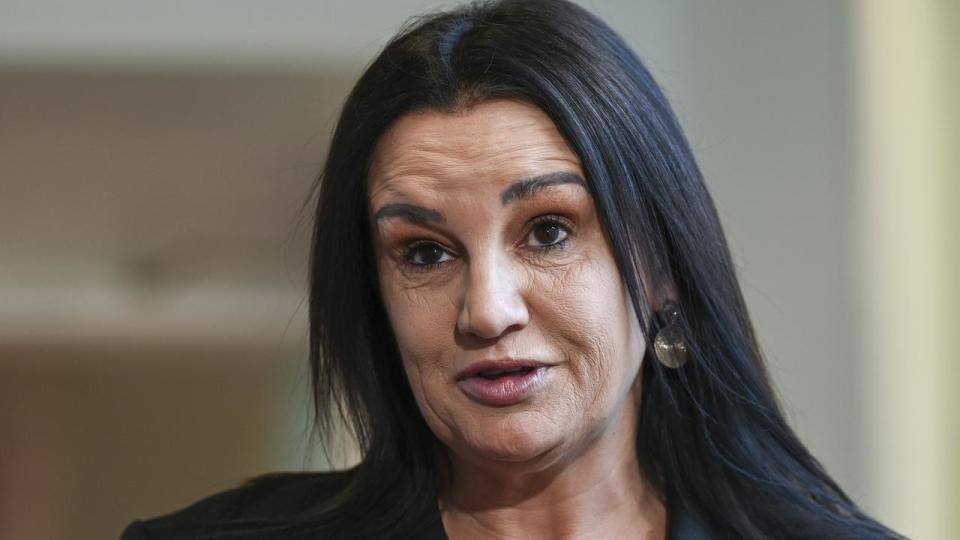
“You cannot sell a product unless you have a plan of attack, and he has no plan.”
Issues around storing nuclear waste are another tension point.
Senator Lambie pointed to the Coalition’s fumbled plans to build a low-level nuclear waste dump in South Australia’s regional Kimba area that were abandoned by the Albanese government following a Federal Court ruling.
“They had nine years just to find somewhere to put low-level waste and they blew that out of their backside,” she said.
“You want to actually wait for them to do nuclear in the next 10, 15 years … good luck with that, honestly, and this is without even having the high-level waste.”
Low-level nuclear waste refers to clothing and equipment contaminated with radioisotopes used by hospitals, research and industry, while nuclear reactors produce high-level waste.
Mr Dutton has previously claimed a 450 megawatt reactor would only produce waste “equivalent to the size of a can of Coke each year” that would be stored on site and then moved to a “permanent home” once the reactor retires.
This, however, has been criticised by experts, who claim a large-scale reactor would produce tonnes of waste.
A Newspoll survey released on Monday found six in 10 Australians supported including nuclear energy in Australia’s energy production pool.
The poll took in answers from 923 respondents from Melbourne, Sydney, Adelaide and Brisbane as well as the regional areas of Victoria’s Latrobe Valley, NSW’s Hunter Valley, the South Burnett and Gladstone region in Queensland, and South Australia’s Port Augusta – areas that could host nuclear plants under Mr Dutton’s plan.
Respondents in Melbourne were least supportive of the plan, with 61 per cent saying they didn’t “believe nuclear power has a place in Australia’s future energy mix”.
People in Brisbane were most supportive of the plan, with 64 per cent opting in favour of nuclear.
Government will ‘override’ states on nuclear: Joyce
Nationals MP and former deputy prime minister Barnaby Joyce says a future Coalition government would steamroll the states to secure Australia’s atomic future, in a move he said was “certainly in our national interest”.
Sparring with federal Environment Minister Tanya Plibersek on Sunrise, Mr Joyce was adamant Mr Dutton would be able to overturn the Commonwealth prohibition on nuclear, accusing the Labor Party of being “scared of the truth”.
“It’s the federal parliament that can remove federal prohibitions. The Labor Party don’t want to because they’re scared of the truth,” he told Sunrise host Nat Barr.
If a potential federal Coalition government faced opposition from the states – the majority of which are currently controlled by Labor premiers – Mr Joyce said the government would “override” them.
“(The Snow Hydro Scheme was built) without the co-operation of the states at that time, it was federal mechanism within the constitution to basically override the states, we can do that again. It is certainly in our national interest,” he said.
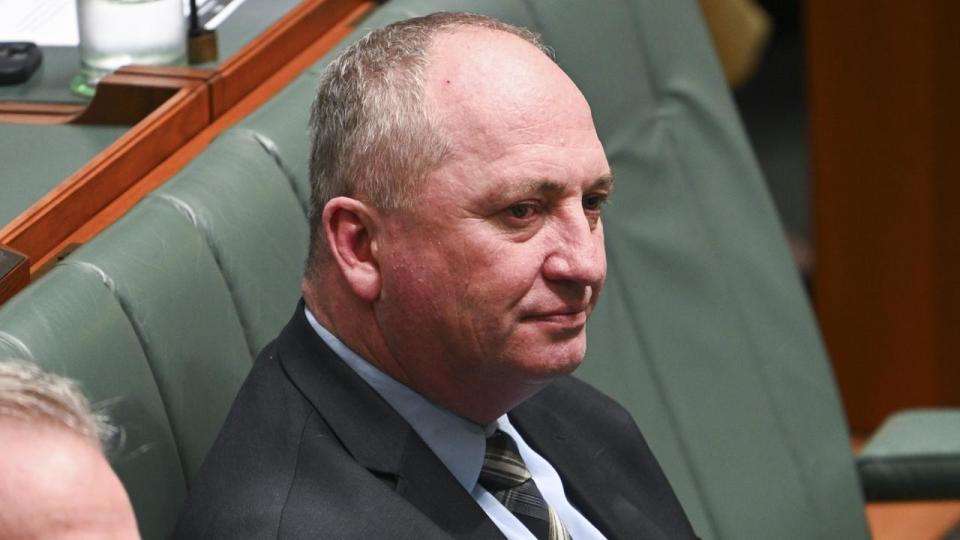
Asked if a Coalition government could still overturn the prohibition even if they didn’t have support in the Senate, Mr Joyce said senators should respect the choice of Australian voters.
“If we go to an election and the majority of Australian people vote for nuclear power, and the Senate goes against the will of the Australian people, that’s an issue that will have to be dealt with at that time,” he said.
“The Australian people should be respected in how they vote.
“That says a lot about the respective senators if they say ‘our personal views are more important than the election we just had’.”

 Yahoo Lifestyle
Yahoo Lifestyle 
